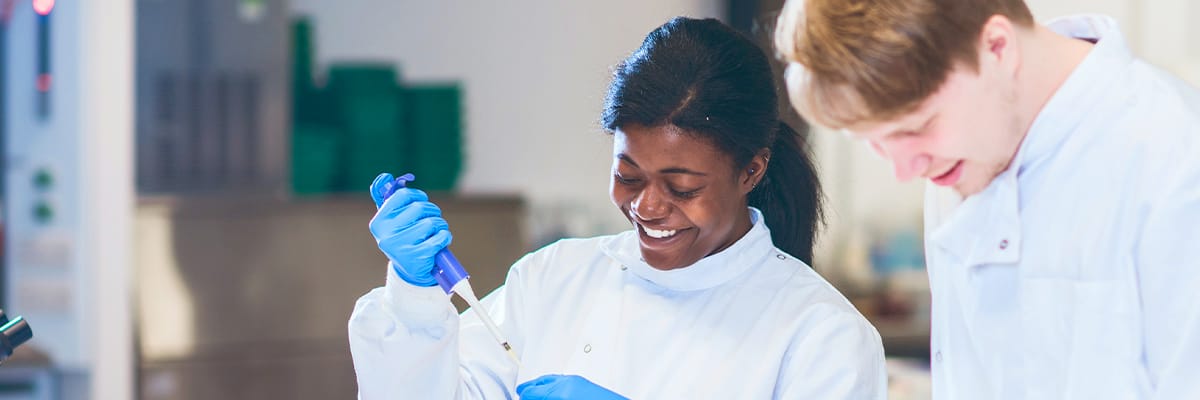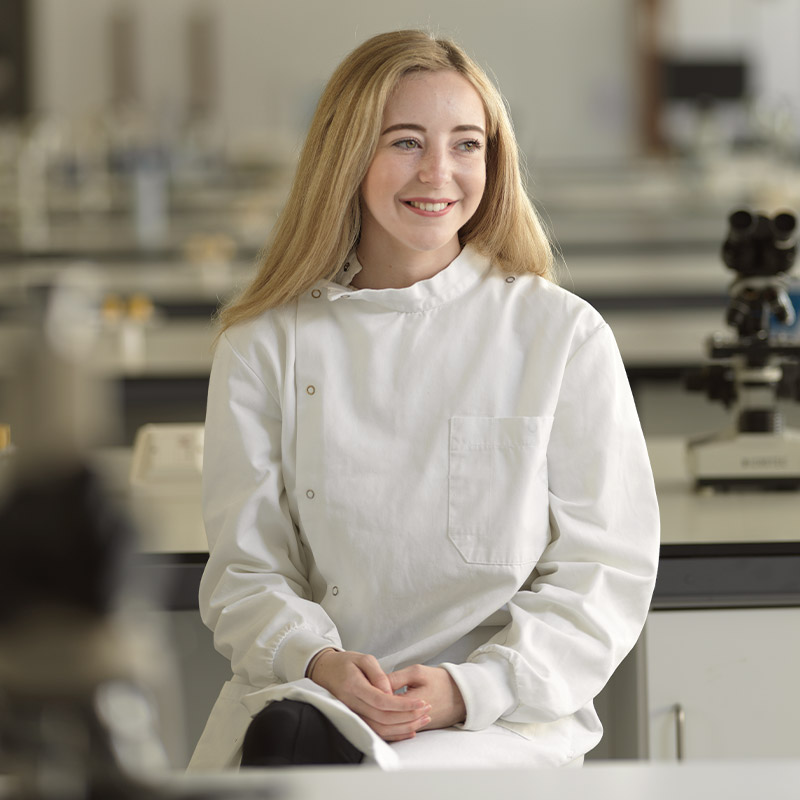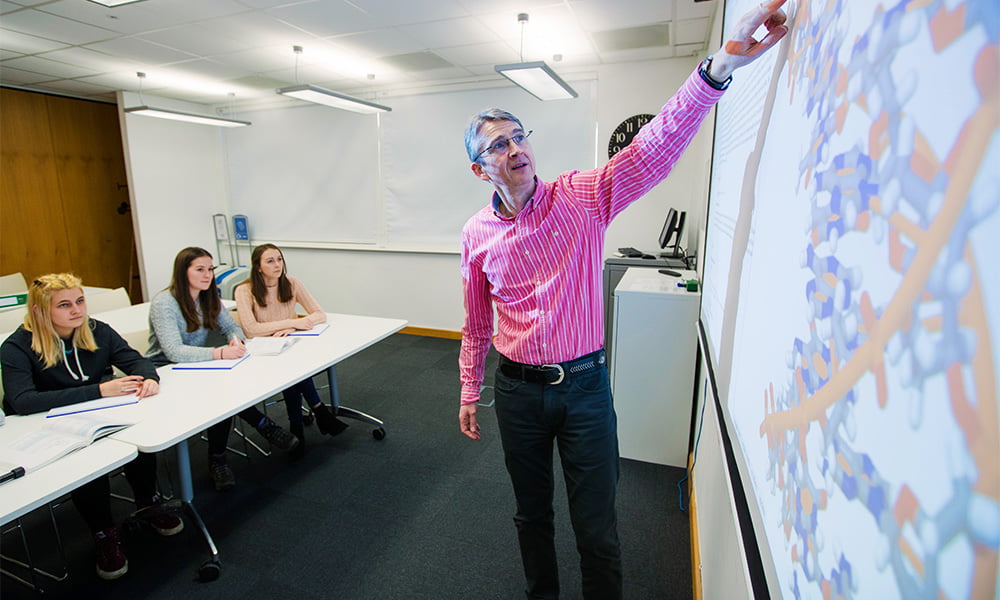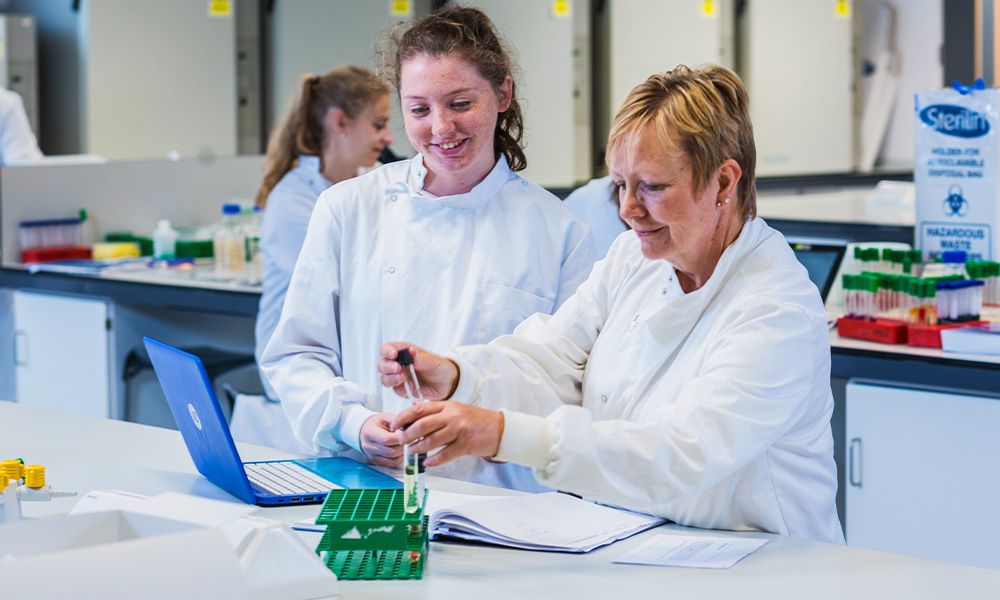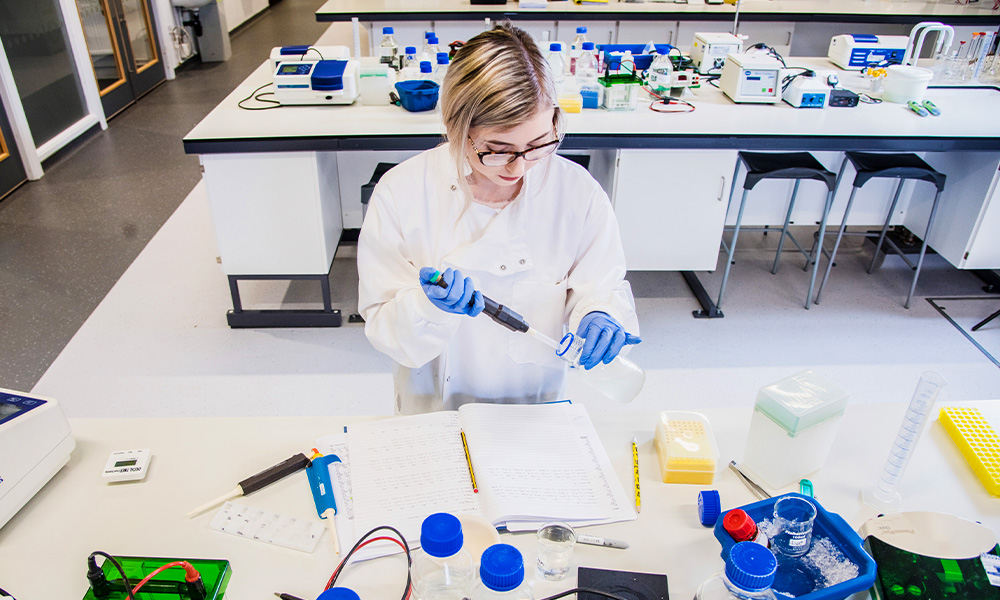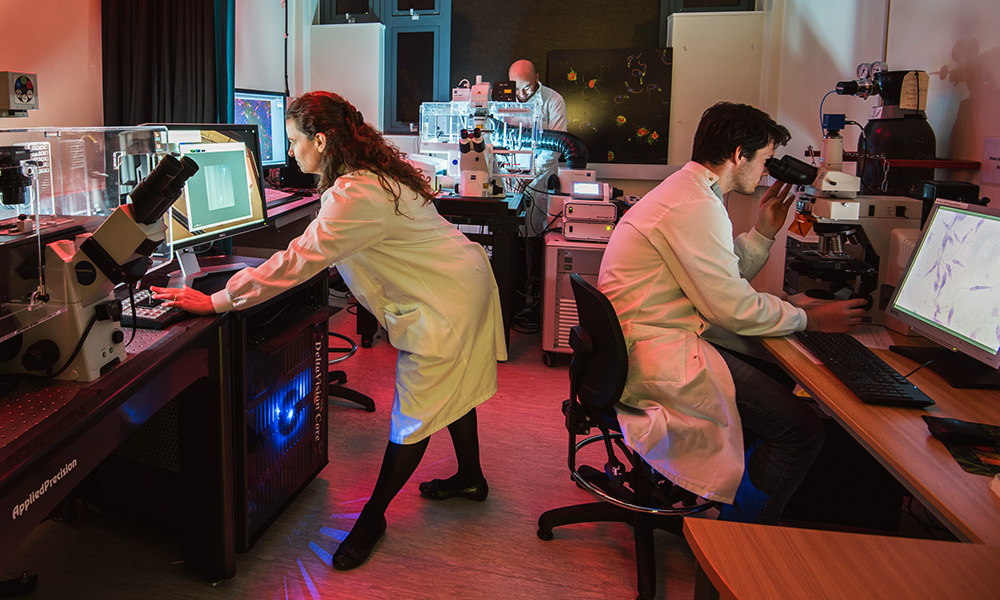Your future career
A biochemistry degree spanning the disciplines of biology and chemistry is excellent preparation for further study or a career in academic or commercial research. It will also give you the transferable skills and analytical training to enter diverse non-science fields including management, teaching, marketing and finance.
Examples of the types of careers pursued by our graduates include:
| Analytical Chemist | Molecular Laboratory Scientist | Operations Analyst |
| Product Delivery Scientist | Research and Development Scientist | Healthcare Scientist |
| Biotechnologist | Forensic Scientist | Medical Chemist |
| Research Scientist | NHS Scientist | Nanotechnologist |
| NHS Manager | Finance Manager | Accountant |
Some roles may require further training.
NHS Scientist Training Programme
Our biochemistry degree is an ideal basis for applying for a highly-sought-after place on the NHS Scientist Training Programme. For more details on specialisms and entry requirements, please visit the NHS website.
Postgraduate study
Many of our students go on to postgraduate study in a field they are passionate about, studying master’s degrees or PhDs in subjects like medicinal chemistry, pharmacology, cancer research, neuroscience, microbiology or immunology.
Careers support
Whatever your career aspirations, we’ll strive to support you and enhance your employability. You’ll receive lifelong support from our careers team, which will help you to make connections with graduate employers and recent alumni.


